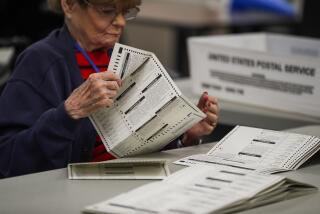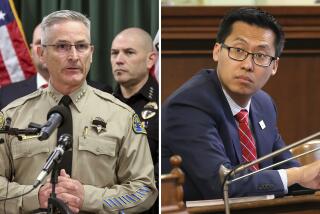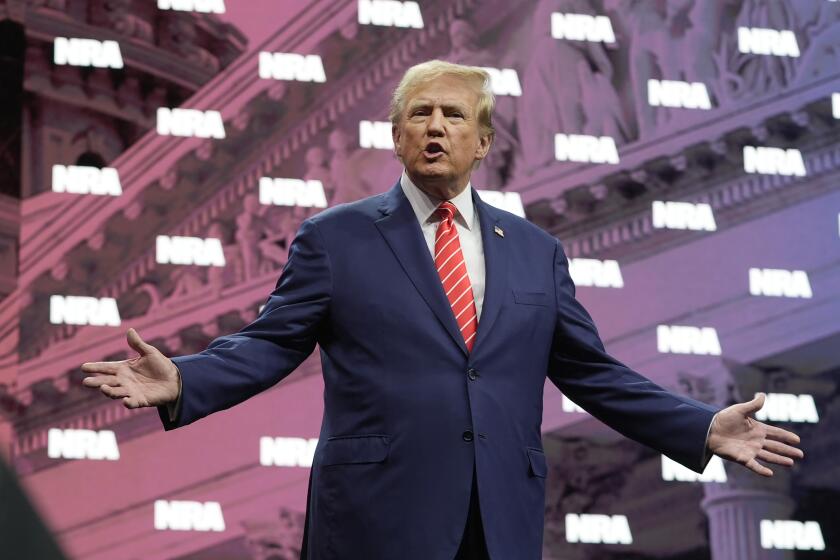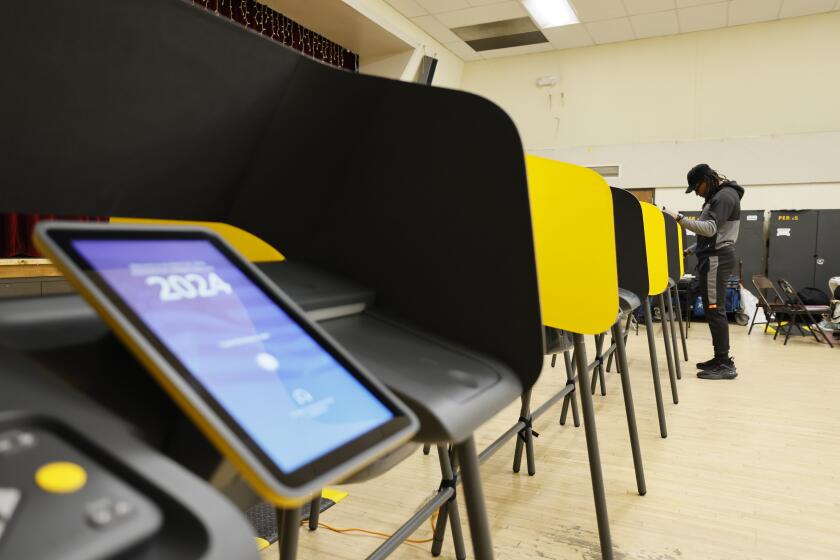Governor Signs Bill Lifting Retailers’ 18% Interest Cap
Gov. George Deukmejian signed legislation Monday removing the existing 18% limit on the interest rate that retailers may charge their customers, his office said, citing the governor’s long held view that competition ultimately benefits consumers.
Consumer activists, who had lobbied hard against the measure, appeared bitter over the governor’s action and predicted that interest rates will rise as soon as the measure takes effect Jan. 1.
“The governor signed the big check and California consumers are going to pay conservatively $150 million more in interest beginning on New Year’s,” warned Carol Evans, a spokeswoman for Consumers Union.
Although Deukmejian signed the bill without comment, an aide said his decision was based on the measure’s approval by a bipartisan majority of both houses of the Legislature and the Republican governor’s “longstanding belief that deregulation and competition ultimately benefit the consumer.”
Lois Wallace, a spokeswoman for the governor, said Deukmejian does not believe that the measure will prompt interest rates to rise, adding: “What we’ve seen in the past is that deregulation works. We don’t believe (the bill) will take interest rates up.”
The bill, introduced by Sen. Ralph C. Dills (D-Gardena) at the request of California’s six largest department store chains, will not affect the interest charged on bank credit cards, such as Visa and MasterCard. These cards have never been regulated by the state, and efforts to impose regulation on them have been defeated in the Legislature.
Under the measure signed by Deukmejian, California joins 16 other states, including New York, in deregulating the maximum interest rate charged on retail credit cards.
The new law will remain in effect for three years, during which time retailers may charge whatever rate they choose. At the end of that period, a report on the results of deregulation will be submitted to lawmakers. The current 18% interest ceiling would automatically return if the Legislature failed at that time to extend the new law.
Consumer groups and public officials were already predicting a bleak outcome.
Los Angeles City Atty. James Hahn, in a letter to the governor, called the measure “costly and deceptive,” and warned it would bring “an era of loan sharking, giving unintended license for unscrupulous usury practices.”
Hahn said the assumption behind the new law is “the existence of a competitive marketplace and that essential fairness will be maintained. . . . (But) a significant number of transactions do not take place within a competitive market. Consumers have few alternative sources of credit financing.”
The Consumers Union predicted in recent weeks that the interest rate on store credit would jump to 21% almost immediately after the new law takes effect. The consumer group bases its prediction on the experience of New York and New Jersey after interest deregulation laws passed in those states, said Harry Snyder, the group’s West Coast director.
The retailers, in pressing for the measure, argued that they are experiencing large losses from their retail accounts and that these losses are keeping them from extending credit to more consumers. The six retailers who sponsored the bill--May Co., Robinson’s, Carter Hawley Hale, Montgomery Ward, Mervyn’s and Macy’s of California--reported that they had collected $312 million in finance charges in 1986 but said they spent $407 million in collecting and administering the accounts.
Unruh Initiative
The cap on retail credit cards was instituted in 1960 under legislation carried by the late Jesse M. Unruh, then Speaker of the Assembly, because of allegedly abusive retail credit practices. At the time, some stores reportedly were charging their credit customers more than 35%.
In 1980, the Legislature authorized a temporary increase in retail credit rates to 19.2%. Consumer groups had held out hope that Deukmejian would veto the deregulation bill because of his action last year in vetoing a measure that would have extended the temporary 19.2% interest rate ceiling for an additional year.
More to Read
Get the L.A. Times Politics newsletter
Deeply reported insights into legislation, politics and policy from Sacramento, Washington and beyond. In your inbox three times per week.
You may occasionally receive promotional content from the Los Angeles Times.






